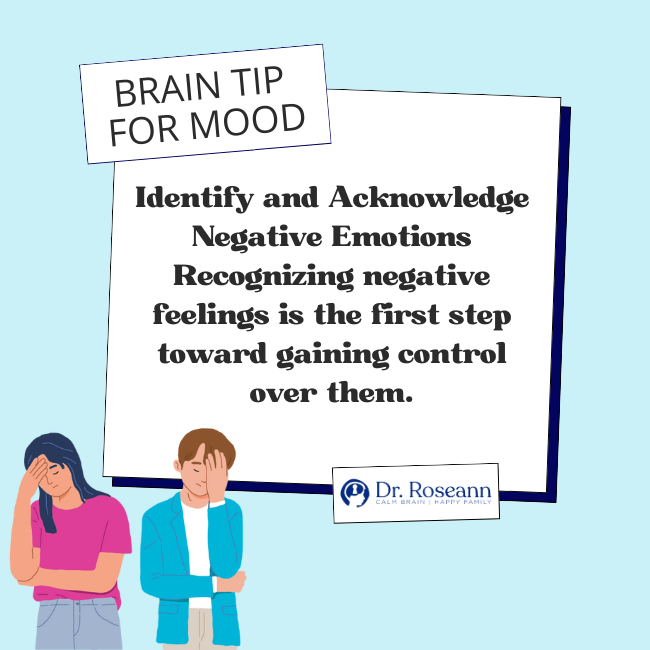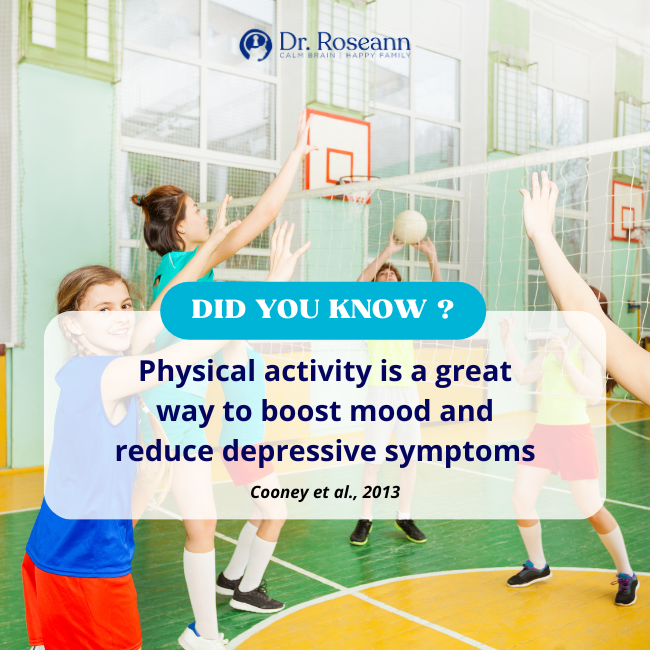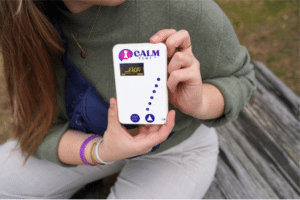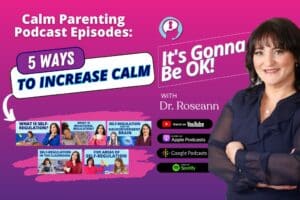When your child or teenager is grappling with mental health and behavioral issues like mood disorders, it can feel like you're navigating uncharted waters. But when they have coping skills for depression, they can support their brain health while enhancing their attention, mood, stress, and behavior. They gain that all-important stress tolerance for little and big life stressors.
Let's gain a better understanding of depression because there are a lot of myths and misconceptions about what it looks like in kids and teens. Depression isn't just feeling a bit down. It's one of the most complex mental health disorders that affects different people in different ways. It ranges from major depressive disorder to persistent depressive disorder, showing how vast its spectrum can be.
Some kids are internalizers who struggle with stomach aches, sadness, and sleep problems. Others are externalizers who display impulsivity, and moodiness or are quick to fly off the handle.
Depression has many faces and can be especially hard to notice because it may creep up gradually. On the other hand, many parents of a child with a mood disorder will remark to me, “They were always moody.”
Remember, depression is not your child's fault, and it's not something they can just snap out of. It's a mental condition that requires understanding and effective coping strategies, which is exactly what we’ll focus on here.
The Impact of Coping Skills on Managing Depression
Coping skills play a crucial role in the management of depression. These skills are tools with a specific purpose and the potential to make a real difference in your child's battle against depression (Fleming & Thornton, 1980).
When depression rears its head, it can feel like an unending storm of negative thoughts, emotions, and behaviors. Children or teens grappling with mood disorders can display behaviors that are hard to understand, let alone manage. They always have poor frustration tolerance, so they need coping skills for depression.
Coping skills act as a shelter against this storm. They provide structure and guidance to help your child regain control over their life when it feels like everything is spiraling out of control. Very sensitive kids can simultaneously struggle with rejection sensitive dysphoria, which means they are very reactive to real or perceived criticism.
Without effective coping skills, the weight of major depression symptoms can become overwhelming. Coping strategies offer an easier route to navigate the treacherous terrain of depression. Furthermore, these skills also serve as a buffer against relapse.
We all know how depression can be persistent and sneaky, often making a comeback when least expected. Coping skills act as a shield that helps your child recognize the warning signs and prepares them to face the challenge head-on. It gives them the resources to take charge of daily stressors or disappointments that can be especially hard to manage when you have a mood disorder
However, there isn’t a one-size-fits-all solution. There’s a range of coping skills your child may choose from to address their unique needs. Some skills may focus on managing negative emotions, while others might emphasize relaxation, social and emotional support, or physical health and well-being.
Coping skills are not merely an optional add-on in the battle against depression; they are a fundamental part of the toolkit for managing this complex condition. They empower your child to regain control, weather the storm, and ultimately find their way back to a place of balance and well-being.
Skills Toolbox and Coping Strategies for Depression
When it comes to navigating the challenging terrain of depression, having a robust toolbox filled with coping strategies is essential. These tools can be the lifeline that your child needs to weather the storm and find their way to calmer waters.
1. Identify and Acknowledge Negative Emotions

One of the first steps in dealing with depression is acknowledging those pesky negative emotions. It's like taking a selfie – you can't change your expression until you see what's there in the first place.
2. Develop a Support System for Coping with Depression
Depression is a battle that you can't win alone. Neither can your child. Building a support system is crucial. Friends, family members, and even online support groups can be a lifeline when depression is making waves.
Though, be warned, seeking support doesn't mean scrolling through endless inspirational quotes on social media. Real support comes from real people, especially parents of children who are going through the same thing. Join a support group that can genuinely help you.
3. Practice Self-Care to Promote Mental Well-Being
Self-care is the buzzword of the century. But it's not just about face masks and bubble baths. It's about taking care of your physical and mental health. A balanced diet, enough sleep, and regular exercise can do wonders for mood and energy levels.
You have to calm the brain and body in order to achieve good mental health. Encourage your child to incorporate these habits into their daily routine. Remember, a healthy body supports a healthy mind.
4. Learn Mindfulness and Meditation Techniques
Mindfulness meditation techniques, such as deep breathing, work like mental reset buttons. They can help your child stay grounded in the present moment.
They also reduce the impact of depressive thoughts and feelings. It may take time for your child to fully embrace these practices, but they are powerful tools for managing stressful situations and promoting emotional well-being (Hofmann & Gómez, 2017).
5. Introduce Creative Outlets as Coping Mechanisms
Sometimes when your child is feeling depressed, the best way to cope is to get creative. Encourage your child to explore their artistic side, whether through painting, writing, or playing music.
Creativity can be a form of therapy in itself. Plus, you never know – you might discover a hidden Picasso or Shakespeare in your midst!
6. Engage in Physical Activities and Exercise

Physical activity is a great way to boost mood and reduce depressive symptoms (Cooney et al., 2013). It's like giving your brain a workout at the gym. Exercise releases endorphins, which are natural mood lifters.
Start with small steps, like spending time outdoors, enjoying short walks, or practicing gentle yoga. Combine these with a healthy diet for optimum effect. It's not about becoming an Olympic athlete overnight; it's about finding an activity your child enjoys.
7. Engage in Positive Social Connections
Maintaining social connections is crucial for combating the isolation that often accompanies depression. Encourage your child to spend time with close friends and engage in social activities that bring joy and laughter into their life. Social support is a powerful tool in the fight against depression.
8. Develop a Regular Sleep Schedule
Quality sleep is essential for mental well-being. Help your child establish a regular sleep schedule that includes enough hours of restorative sleep. A consistent sleep routine can improve mood and energy levels and reduce the impact of depressive symptoms.
9. Set Realistic Goals
Setting achievable short-term and long-term goals can provide a sense of purpose and accomplishment. Encourage your child to break down larger tasks into smaller, manageable steps. Achieving these goals can boost self-esteem and motivation.
10. Practice Positive Self-Talk
Negative thinking can fuel depression. Teach your child to challenge and reframe negative self-talk. Replace self-criticism with self-compassion and positive affirmations. This change in thought patterns can promote a more positive outlook.
11. Build Resilience to Easily Handle Setbacks
Coping with depression is a journey with its ups and downs. It's essential to build resilience and understand that setbacks are part of the process. Celebrate small victories and keep moving forward. Remember, every step your child takes in the right direction is a step closer to a brighter future.
12. Empower Yourself
Depression is a challenging but manageable endeavor. As a parent, you can understand depression more by building a support network that can help your child navigate this difficult terrain.
13. Seek Professional Help
Depression requires the expertise of mental health professionals. Encourage your child to reach out for professional medical advice and explore treatment options that include natural, science-backed therapies and holistic interventions.
The BrainBehaviorResetTM Program is a cutting-edge natural therapeutic intervention designed to address depression from a unique perspective. It recognizes that depression is not solely a result of emotional or psychological factors but is deeply intertwined with the intricate workings of the brain. This program aims to reset and recalibrate these brain behaviors, offering new hope and possibilities for individuals struggling with depression.
At its core, the BrainBehaviorResetTM Program combines the latest advancements in neuroscience with evidence-based psychological therapies, such as neurofeedback, PEMF, and magnesium supplementation.
It is a holistic approach that recognizes the interplay between brain chemistry, thought patterns, and behavior. Targeting and resetting specific neural pathways, the program seeks to alleviate the symptoms of depression and promote long-term recovery.
Remember, you're not alone in this journey. Joining parent communities can help you support your child's efforts to incorporate healthy habits into their daily life. With time, patience, and the right coping skills, you and your child can find hope and healing amidst the storm of depression.
Parent Action Steps
☐ Learn about depression to better understand its impact on your child.
☐ Explore and discuss coping strategies that resonate with your child.
☐ Create a non-judgmental space for your child to express their emotions.
☐ Actively seek out support groups or therapy sessions for both you and your child.
☐ Help your child establish a routine of healthy habits.
☐ Encourage your child to explore mindfulness and meditation techniques.
☐ Provide resources for your child to pursue creative outlets.
☐ Initiate physical activities that you and your child can enjoy together.
☐ Celebrate achievements and remind your child that setbacks are part of the journey.
☐ Continue to educate yourself and be a source of unwavering support for your child.
☐ Listen to the webinar “3 Natural Solutions for ADHD, Anxiety, and Mood Disorders”.
Citations
Cooney, G. M., Dwan, K., Greig, C. A., Lawlor, D. A., Rimer, J., Waugh, F. R., McMurdo, M., & Mead, G. E. (2013). Exercise for depression. Cochrane Database of Systematic Reviews, 9(9). https://doi.org/10.1002/14651858.cd004366.pub6
Fleming, B. M., & Thornton, D. W. (1980). Coping skills training as a component in the short-term treatment of depression. Psycnet.apa.org. https://psycnet.apa.org/record/1980-32845-001
Hofmann, S. G., & Gómez, A. F. (2017). Mindfulness-Based Interventions for Anxiety and Depression. Psychiatric Clinics of North America, 40(4), 739–749. https://doi.org/10.1016/j.psc.2017.08.008
Are you looking for SOLUTIONS for your struggling child or teen?
Dr. Roseann and her team are all about science-backed solutions, so you are in the right place!
Grab your complimentary copy of
147 Therapist-Endorsed Self-Regulation Strategies for Children: A Practical Guide for Parents
You can get her books for parents and professionals, including: It’s Gonna Be OK™: Proven Ways to Improve Your Child’s Mental Health, Teletherapy Toolkit™ and Brain Under Attack: A Resource For Parents and Caregivers of Children With PANS, PANDAS, and Autoimmune Encephalopathy.
If you are a business or organization that needs proactive guidance to support employee mental health or an organization looking for a brand representative, check out Dr. Roseann’s professional speaking page to see how we can work together.
Dr. Roseann is a Children’s Mental Health Expert and Therapist who has been featured in/on hundreds of media outlets including, CBS, NBC, FOX News, PIX11 NYC, The New York Times, The Washington Post, Business Insider, USA Today, CNET, Marth Stewart, and PARENTS. FORBES called her, “A thought leader in children’s mental health.”

She is the founder and director of The Global Institute of Children’s Mental Health and Dr. Roseann Capanna-Hodge, LLC. Dr. Roseann is a Board Certified Neurofeedback (BCN) Practitioner, a Board Member of the Northeast Region Biofeedback Society (NRBS), Certified Integrative Mental Health Professional (CIMHP) and an Amen Clinic Certified Brain Health Coach. She is also a member of The International Lyme Disease and Associated Disease Society (ILADS), The American Psychological Association (APA), Anxiety and Depression Association of America (ADAA) National Association of School Psychologists (NASP), International OCD Foundation (IOCDF) International Society for Neurofeedback and Research (ISNR) and The Association of Applied Psychophysiology and Biofeedback (AAPB).
© Roseann-Capanna-Hodge, LLC 2023










